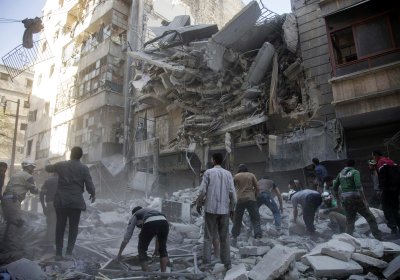Syrian Democratic Forces (SDF) finally liberated Raqqa, in northern Syria, from ISIS occupation on October 17, after a battle of 135 days. In 2014, ISIS declared Raqqa its capital, which makes its defeat a decisive event.
The SDF is a multi-ethnic and multi-religious armed force made up of dozens of militias that is committed to the political project of “democratic confederalism”, the participatory democratic project associated with the Kurdish-led Rojava Revolution.









 This picture looks like any ordinary scenery from the Kobanê countryside. The idyllic villages and golden wheat fields with the sleepy little houses tucked away across the distance. But, it is more than that.
This is Ain Issa, an area of Tell Abyad and the frontline between the Syrian Democratic Forces (QSD) and Daesh (Islamic State).
This picture looks like any ordinary scenery from the Kobanê countryside. The idyllic villages and golden wheat fields with the sleepy little houses tucked away across the distance. But, it is more than that.
This is Ain Issa, an area of Tell Abyad and the frontline between the Syrian Democratic Forces (QSD) and Daesh (Islamic State).

 Press conference on October 15 announcing the formation of the Democratic Forces of Syria. Photo via Kurdish Question.
The Democratic Forces of Syria held a founding meeting on October 12 and released a final declaration three days later,
Press conference on October 15 announcing the formation of the Democratic Forces of Syria. Photo via Kurdish Question.
The Democratic Forces of Syria held a founding meeting on October 12 and released a final declaration three days later,